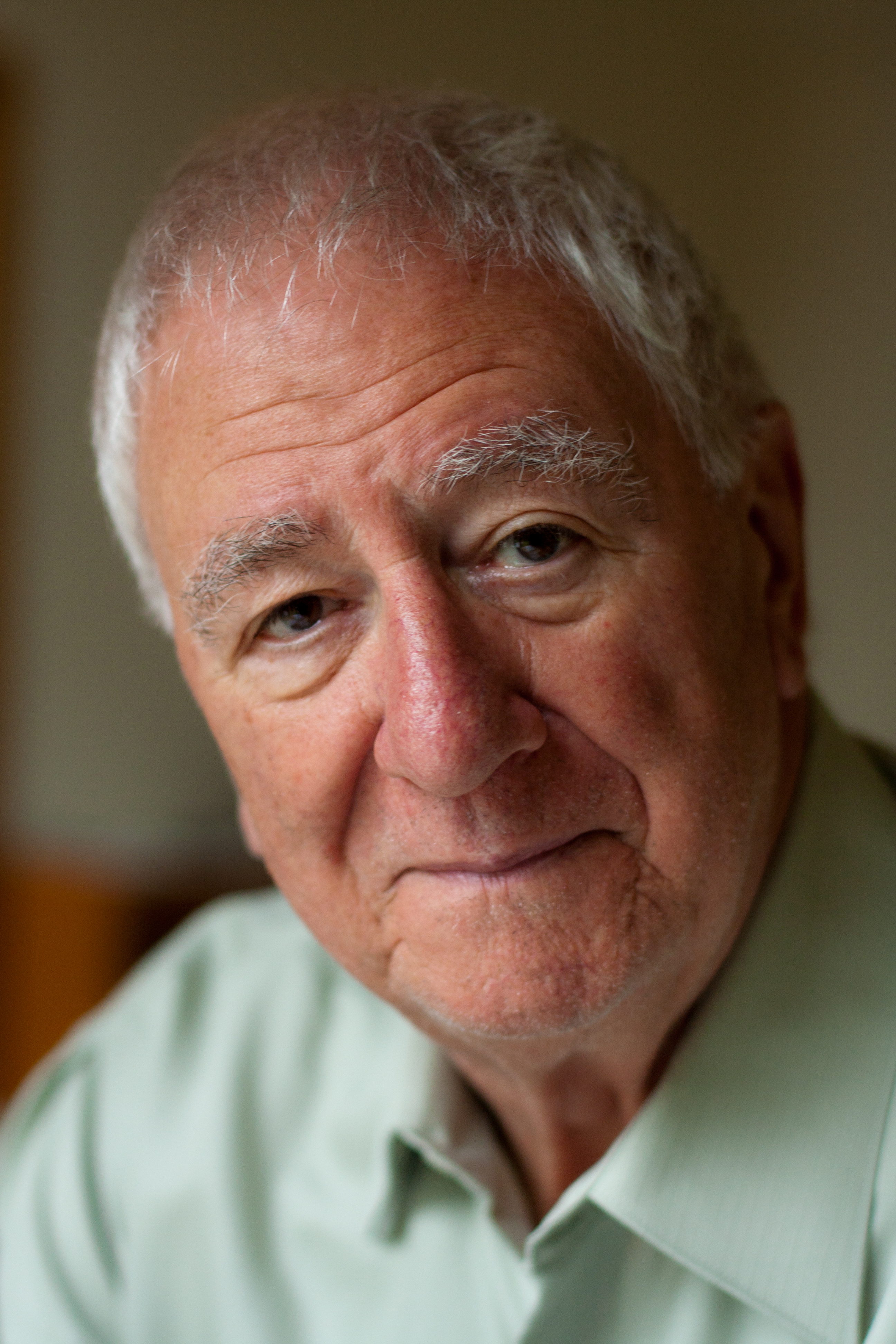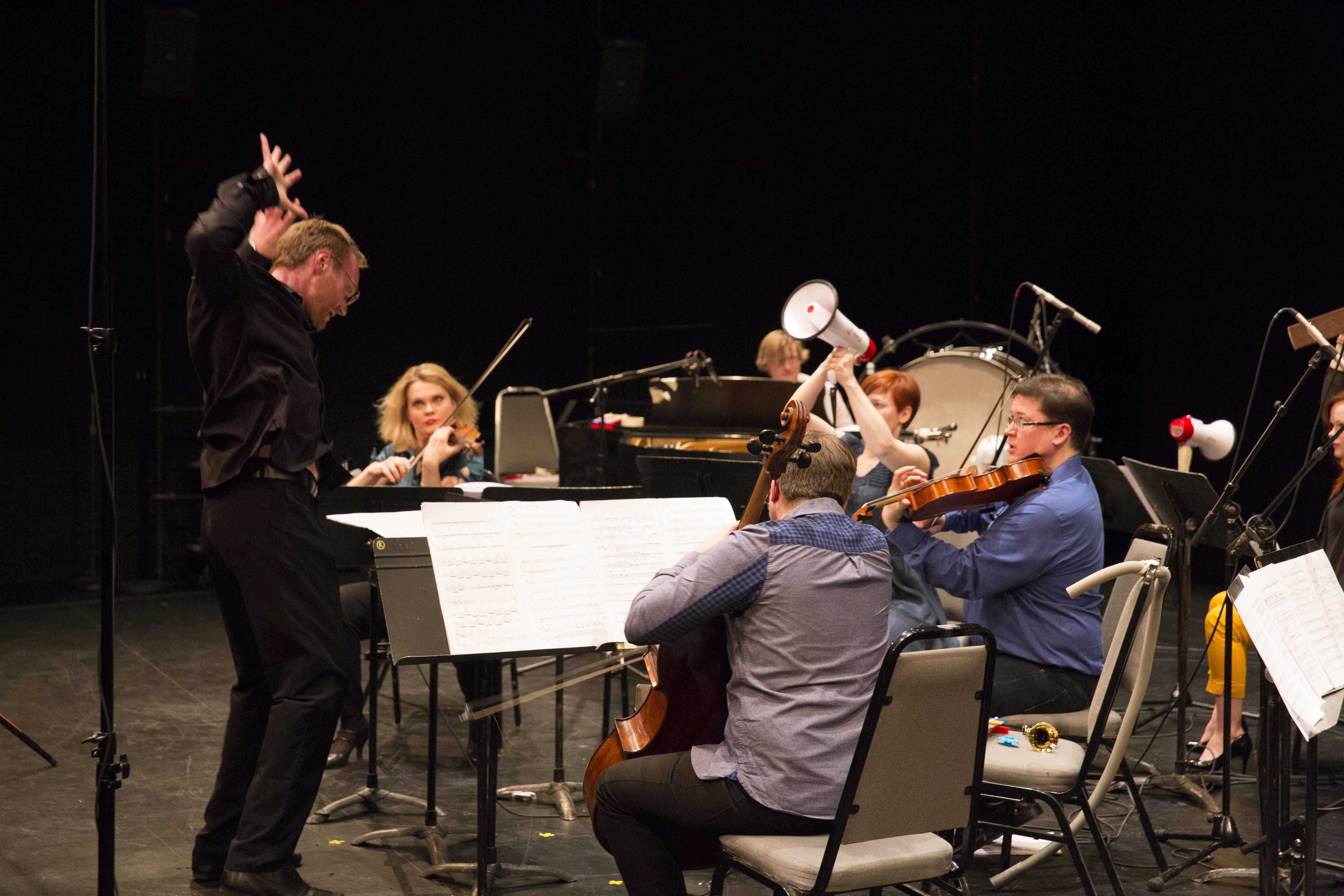Last Fall, Edge of the Center began an intermittent series of alumni profiles. This week we thought we'd return to this series, checking in with two former UB composers, both of whom are continuing to produce a variety of exciting artistic projects.
 |
| Leah Muir |
Leah's work has been performed by the Bruckner Orchestra Linz, Ensemble SurPlus, Trio Amos, New York New Music Ensemble, and the Buffalo Philharmonic Orchestra, and has been heard at such venues and festivals as the Deutsche Oper Berlin, Münchener Biennale, Wien Modern, the Aspen Music Festival, June in Buffalo, and Ars Electronica. Her own music theatre productions include Von Sodom und Gomorra nach Berlin, premiered in 2012 at the Münchener Biennale, and the 2013 mini-opera Wie man findet, was man nicht sucht, which was commissioned as part the "Neue Szenen" prize at the Deutsche Oper.
Leah's recent works include The Quanta of Sublimity, for strings, percussion, and improvising mallet instruments, which was premiered last month in Laussane, Switzerland by the Tchiki Duo, with David Friedman on mallets, and Marc Leroy-Calatayud conducting. She also has three more premieres in store for the spring, including Das Siebte Gebote, a vespers for soprano, bass clarinet, and organ, which was commissioned by the Guardini Stiftung for soprano Irene Kurka. The work will be premiered in St. Matthäus Kirche in April, with a follow-up performance in June. Another premiere will be included on a May 13th performance by Berlin PianoPercussion at the Konzerthaus Berlin: Punch for two pianos, percussion, and 'video ePlayers'. "While there is no specific definition for ePlayer," Leah explains, "I understand it as a digital performer and utilize samples a musician might be able to execute on his/her instrument. A video ePlayer adds the visual layer." Leah's Geigenwerk also features video ePlayer, and will be premiered at an upcoming concert by Sarah Saviet. It's certainly a very productive and exciting time for Dr. Muir!
 |
| Nora Ponte |
Nora has had a number of recent works commissioned and premiered. Ser Diferente, for flute, guitar, and viola, was commissioned by Matiegka Trio and premiered in Buenos Aires in 2010. The piece was recorded by the ensemble, and included on their 2011 CD, Trio Matiegka de Buenos Aires: Música para flauta, viola y guitarra. In addition, Alma Mater, for electronics, was commissioned by the 2011 Sound for the Spaces / Spaces for the Sound exhibition at El Arsenal de la Marina, in San Juan. An excerpt of this piece can be heard below:
Other works which have been premiered recently include Espejismos for solo piano (2010), which Nora performed at the Arts Inter-American Festival at Fracisco Arriví in San Juan, and Vitrales I y II for four-channel electronics, which was premiered at San Juan's Contemporary Arts Museum in 2009. The latter piece was also included on the Batiscafo 12B compilation CD in 2012.
Nora is grateful for her time at UB, and thanks the University for her fellowship and the opportunities it offered her. She now serves as Associate Professor of Composition and Director of the Electronic Music Laboratory at the University of Puerto Rico at Rio Piedras. Nora is currently working on a new electronic piece related to Bach's Sixth Brandenburg Concerto, and a separate solo piano piece. This summer, she will record two pieces for a CD she is hoping to have released by the year's end: Aforismi for string quartet (2015) and Preludios for flute and piano (which includes two preludes from 1990, and a third from 2013). We can't wait to hear the final product!
Congrats to Leah and Nora for all their accomplishments and upcoming projects! We're eagerly looking forward to what they come up with next!










